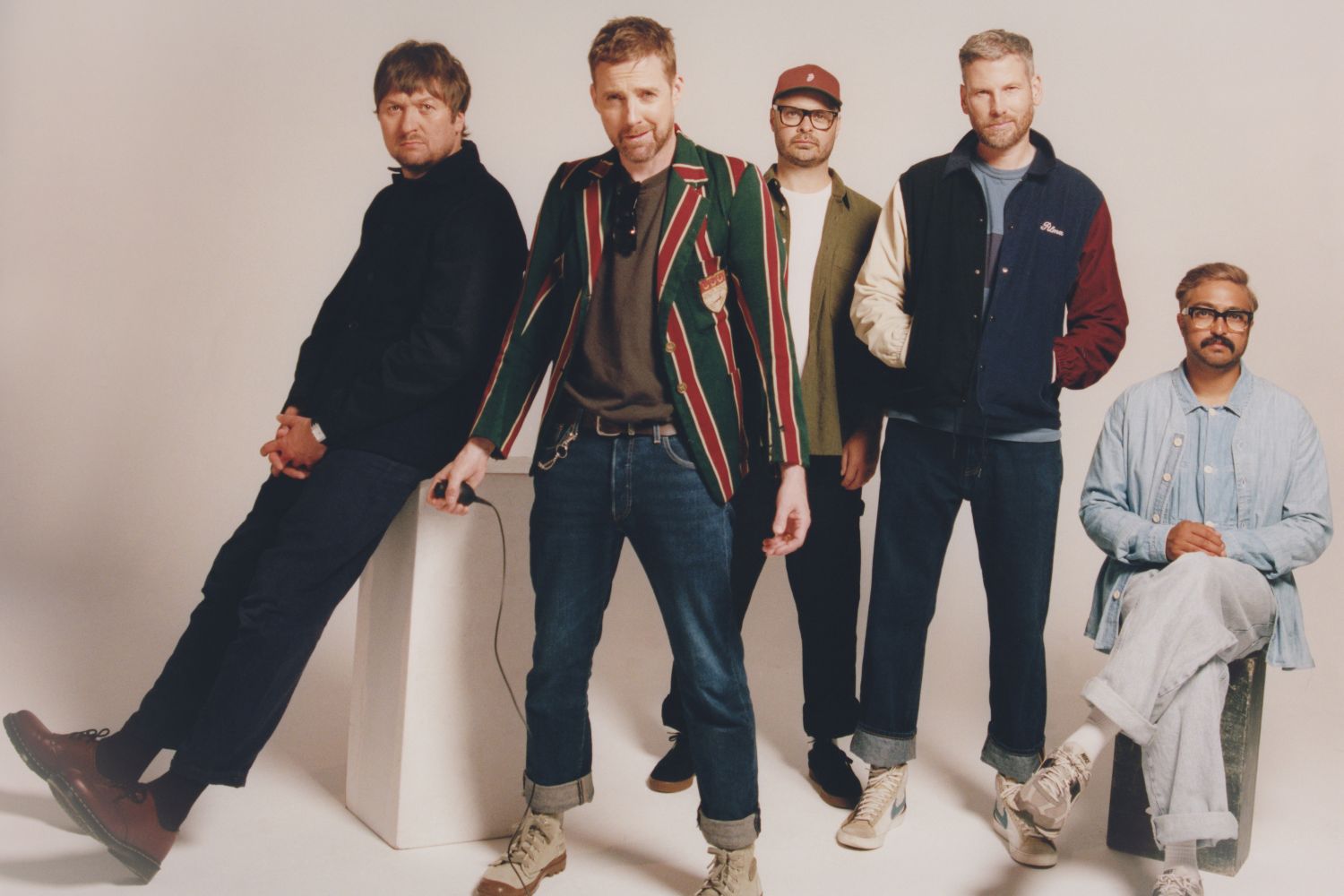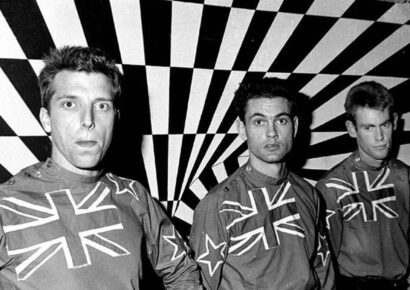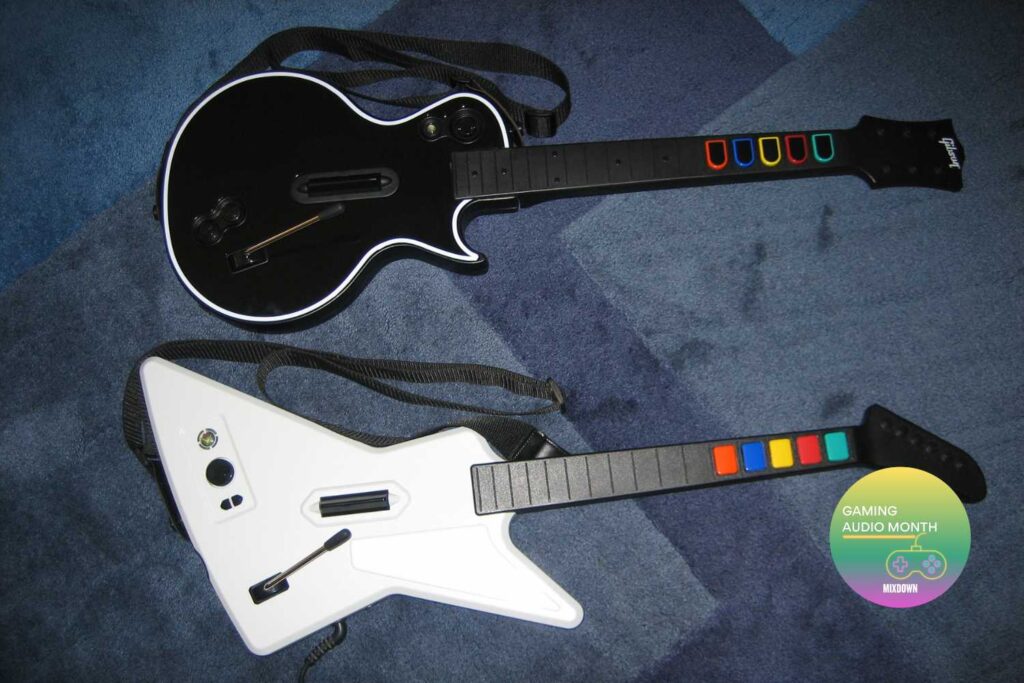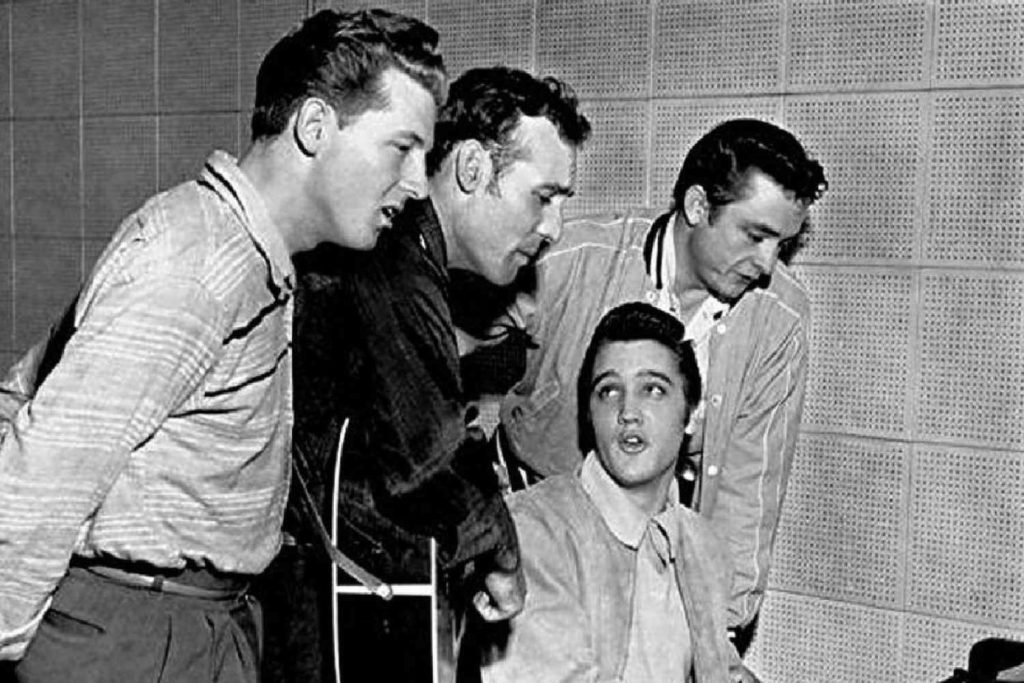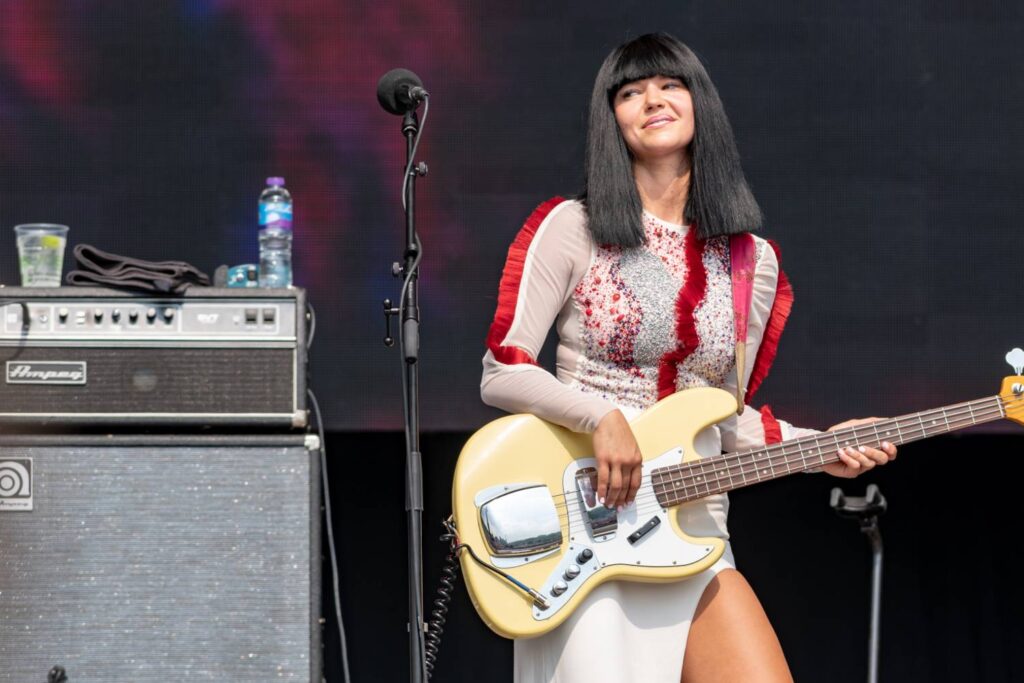The Kaiser Chiefs formed in 1996 under another name and have found their way to their own unique sound over the last 25 years or so.
This isn’t Kaiser Chiefs’ first rodeo, with seven albums and countless shows and tours under their belts. Their eight album, the aptly named Kaiser Chiefs’ Easy Eighth Album borrows from all of this experience and adds a sprinkling of input from stars like Nile Rodgers, Amir Amor, The Cribs, Hak Baker and David Arnold.
Recorded across multiple studios as a lot of albums are in 2024, we had the chance to find out just how easy this album was.
Kaiser Chiefs
Guys, thanks for taking the time! We have to start with the new album title Kaiser Chiefs’ Easy Eighth Album – is this a facetious title or a literal one?
The title is something a bit like manifesting. We thought if the second album is the difficult one, why can’t the eighth one be the easy one? Does doing something creative have to be difficult? The answer is obviously no. Part of that was the way we recorded and produced the album. Rather than the stresses of one big recording session, building up to one moment and going away to an expensive residential studio, we recorded wherever/whenever.
Read all the latest features, lists and columns here.
We did spend time at Decoy studios in Suffolk which was great and a more traditional approach building up the parts, but we also recorded things from bass parts in my house to whole songs using basic gear in our rehearsal room. Everything ended up in the safe hands of Amir Amor – member/producer of Rudimental who helped us shape a new sound for Kaiser Chiefs through programming and some amazing work on his Moog Sub37.
What does the writing process look like for Kaiser Chiefs?
Our writing process changes from song to song. A lot of the time it comes from when we are jamming. We record everything using a Mackie DR32 which we bought years ago and then I (Simon) will normally listen to it and pick out things we should go back to/build upon. More recently we’ve been individually bringing ideas we’ve made in Logic at home for the band to work on.
I think for the jamming approach it needs everyone to be 100% focused and engaged so it’s good to have a few things in the bag so we are always moving forward with the song writing. Other songs on this album were collabs with Amir and much more built in the box. I think one of the main things for the album I learned was not spending too much time making things perfect, editing things or getting the perfect mic position or vocal chain. The vibe is much more important. Almost anything is possible using plug ins and DAWs but creating the mood, getting an emotional connection is the magic.
Nile Rodgers
There’s some additional work from some world-class musicians (besides yourselves of course!), like Nile Rodgers. How and when did the idea come about for guest spots and why?
Nile’s involvement was one of the catalysts to starting the album. We heard he’d like to do a song with us and we were very keen. It was at the end of lockdown so it started with a Zoom of course. Amir produced that first session and was keen to do some more work with us. Suddenly we were making an album. Other contributors include our good friends The Cribs, Hak Baker and David Arnold. In keeping with the album they were just people we thought would add things to the various songs as we went along mainly when we thought they just needed something extra special to get them finished.
Do you feel pressure after releasing so many highly-regarded albums to maintain a certain quality? Or do you just write how you always do and let it happen?
It’s an interesting time to ask us that question, because I think every album since 2005 we’ve always felt a lot of pressure. A lot of that pressure comes from us I think and we did the last three albums in five years. We were thinking about [taking] a break anyway but Covid gave us the opportunity to just stop, take stock, [and] look back at what we have achieved, appreciate what we do. So yeah, the idea with this one was no stress. Just creativity. Good songs. Everyone do what they want to do. I think it worked so far.
Decoy Studios, Suffolk
What is the recording process like for Kaiser Chiefs? Are you recording things isolated from each other or jamming in a live room? Something else entirely?
Traditionally we do the traditional thing. So [we] write a bunch of songs, pick a producer, do some pre production in Leeds/London in a rehearsal room. Then pack up way too much gear and go to a big residential studio. Like Hook End (RIP), The Church (in London) or Maze (in Atlanta). It’s a method that’s treated us very well. Starting with drums, maybe with the bass, and then building the track gradually with vocals in the final days. Everything isolated. All the sounds really tweaked before any recording really takes place. This one though we ripped that up a bit. We spent some days at Decoy in Suffolk which was ace and we did do it in a relatively traditional way but with producer Amir taking things away overnight and programming/editing the songs as we went. We only did about 4 songs that way though and the rest was a lot less “normal”.
Recording things at Amir’s home studio or in our rehearsal room became the new normal and it was fun gradually going through songs. Working out which parts of demos were keepers and what we needed to go back to and record. Doing fun overdubs in our own time like a lot of the wilder guitar stuff in Leeds and then sending over the best takes/parts to Amir to build up the songs ’till we thought they were done. Not worrying too much about spill/bleed (apart from with drums), just trying to get exciting parts from everyone individually. In many ways it made things easier and more fun, it probably also slowed things down too. But it felt much more in keeping with how people make albums now.
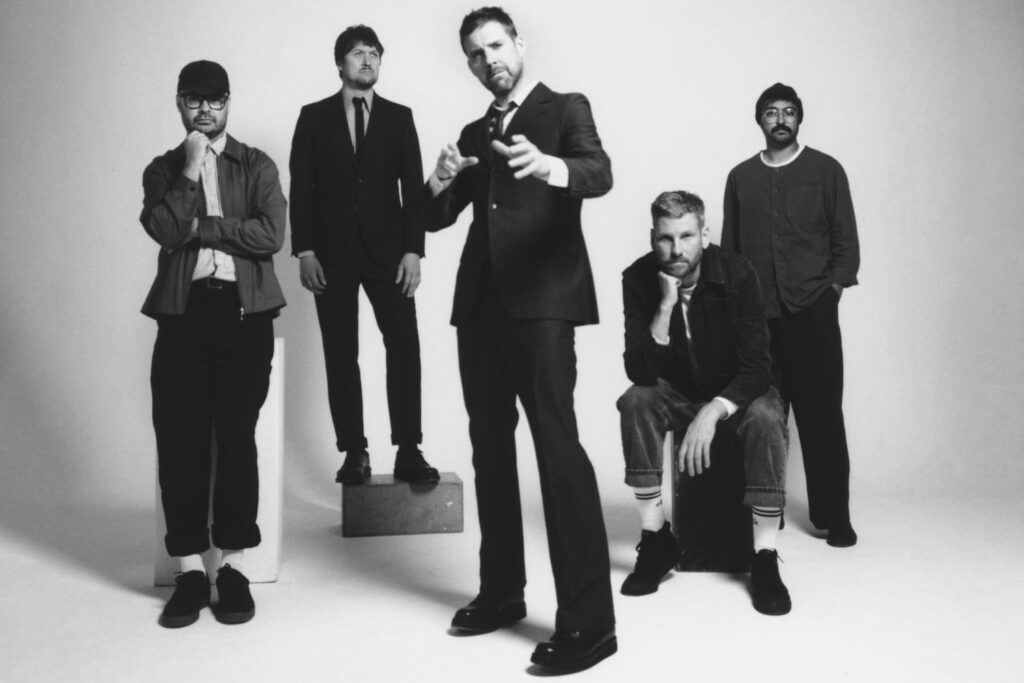
Have you performed any of these songs live yet? How do the live versions of songs compare to the recorded studio versions?
I think the big thing in 2024 is people are very used to people playing to backing tracks and live versions sounding amazing and like the recorded versions. However playing to click can definitely affect the energy with less natural ramps in tempo. For us it’s always a balance of reproducing the record and keeping the live energy. Basically if we can we keep it 100% live, without it affecting the result then we will. But even if we are using a track we’ll make sure it’s only vital parts. And often we’ll do things like adjust the tempo from the recorded version to increase the urgency and hopefully give it a bit of an extra push for the live audience.
Are live shows something you think about when writing and recording?
In the past it was one of the main things we thought about. “Imagine playing this at Glastonbury” was a bit of a test. Now we know that we probably won’t play all the songs on the album that much live. They’ll be a few live favourites, but things can sit on albums too and still be great Kaiser Chiefs songs.
Thanks for the time! As a closer, is there anything that formed the workflow for making Kaiser Chiefs Easy Eighth Album that you wish you’d known for earlier albums? Maybe something you learned throughout the making of this, your eighth, album?
Don’t stress. Do the best idea. Remember your idea is not always the best idea.
Keep up with the Kaiser Chiefs here.
